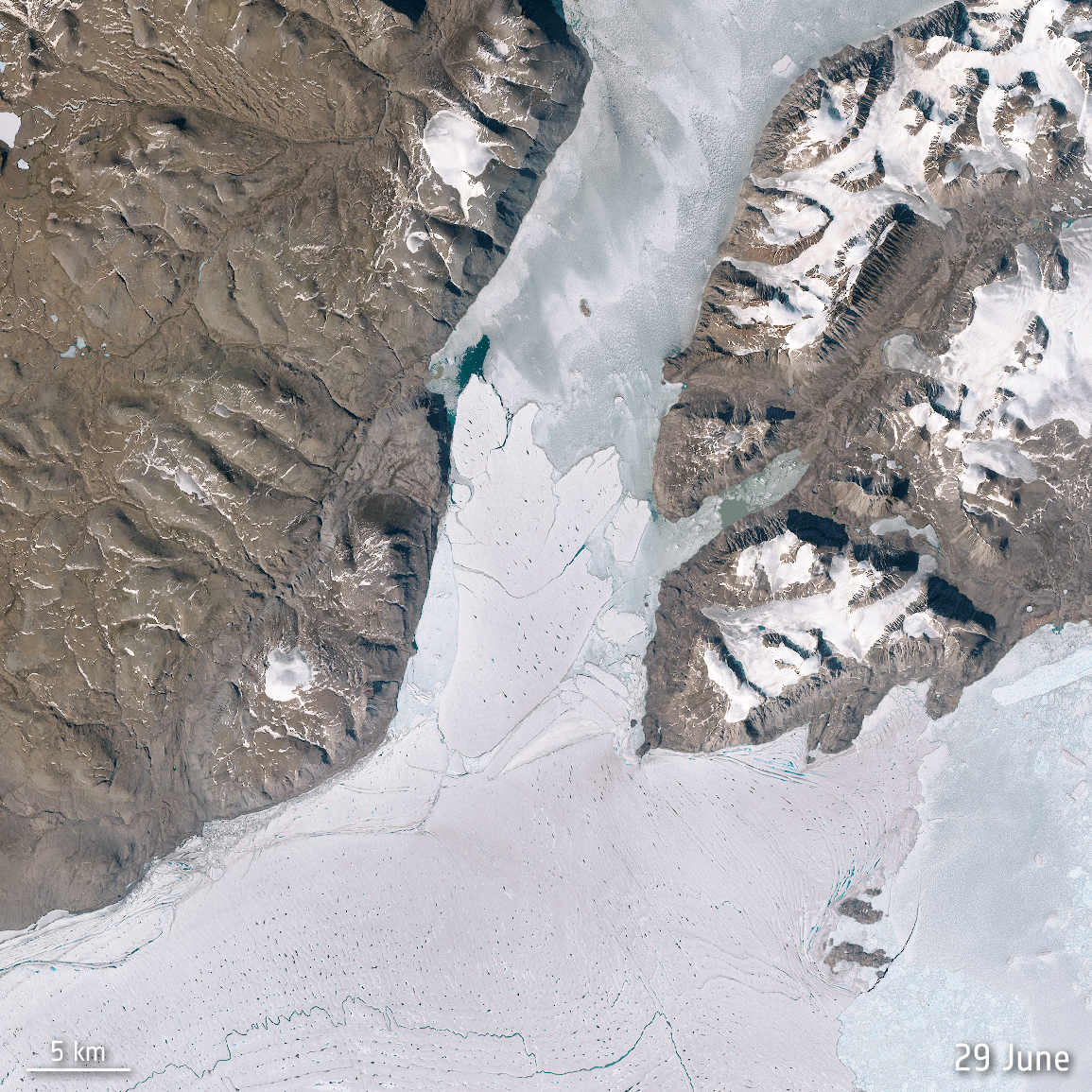Credit: contains modified Copernicus data (2020), processed by ESA
This series of four Copernicus Sentinel-2 images captured between 29 June and 24 July 2020, shows a segment of the largest ice shelf in the Arctic break up and shatter into a flotilla of small icebergs totalling an area of around 125 sq km.
The Nioghalvfjerdsfjorden Ice Shelf, also known as 79N, is the floating front end of the Northeast Greenland ice stream—where it flows off the land and out into the ocean. At its leading edge, the 79N glacier splits in two, with offshoot turning north. It's this offshoot, or tributary, called Spalte Glacier, that has now disintegrated.
With climate change taking a grip, Spalte Glacier's final separation from the 79N Ice Shelf comes after some years of progressive disintegration. 79N has retreated by about 23 km since 1990, with significant losses over the last two record-breaking warm summers. Numerous ponds can also be seen on top of the remaining ice shelf, a sign of melting in the recent warm air temperatures. The ocean waters beneath the shelf are also likely to have warmed, increasing the risk of melt from below.
79N only recently took claim of being the Arctic's largest ice shelf after the Petermann glacier, also in northwest Greenland, lost a lot of ice in 2010 and 2012.
Provided by European Space Agency
























